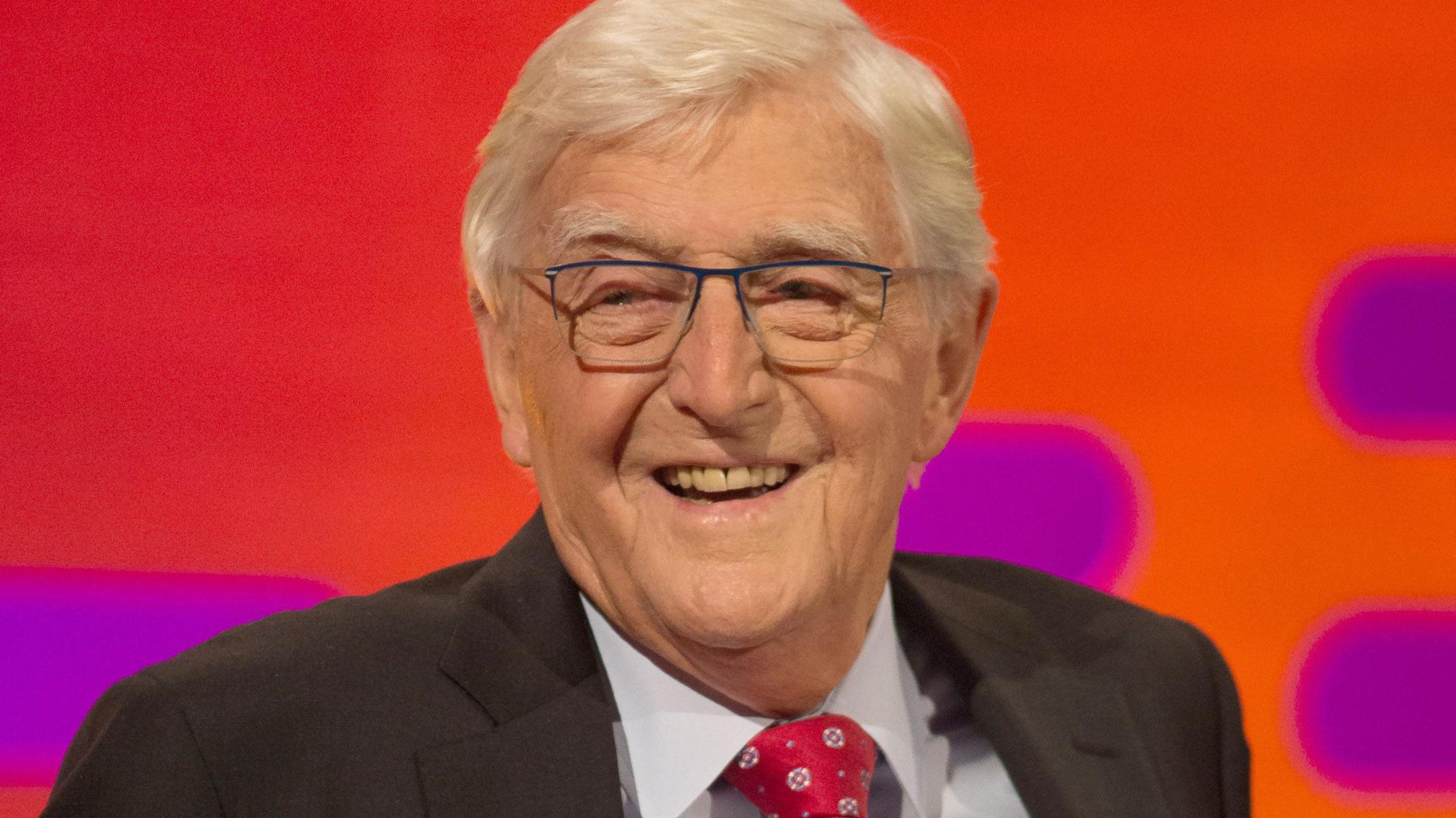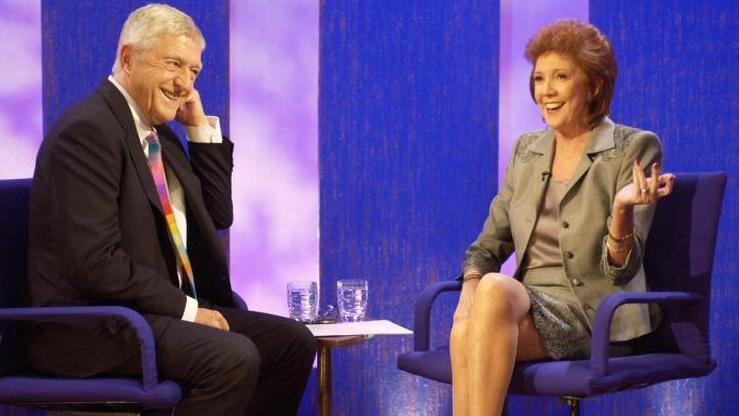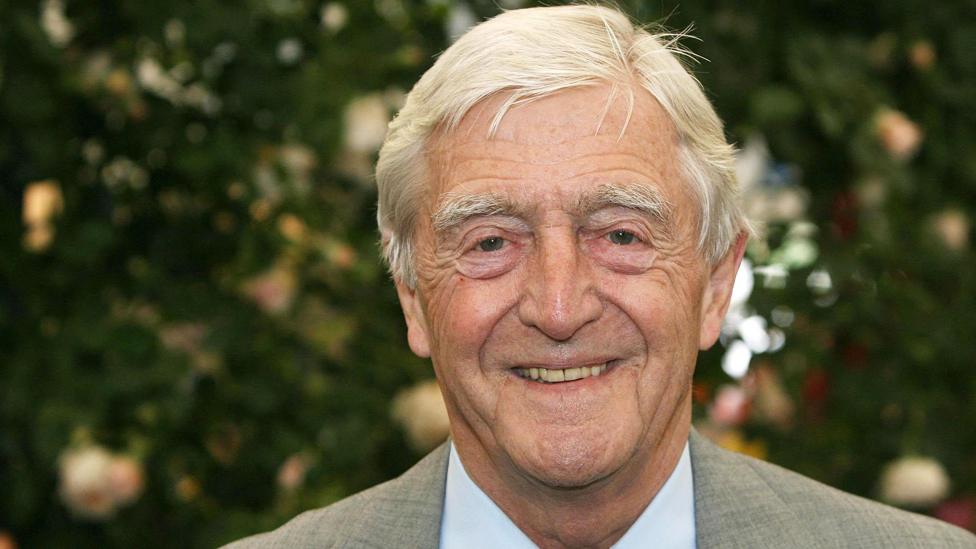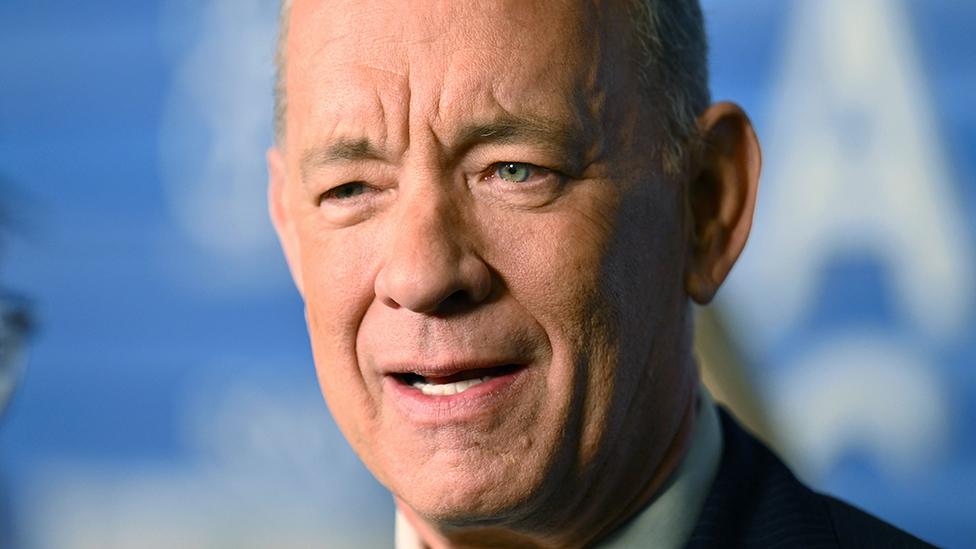Michael Parkinson's son defends new AI podcast

A new podcast recreates Sir Michael's voice for a string of new interviews
- Published
Sir Michael Parkinson's son has defended the use of AI to recreate the voice of the late chat show host for a new interview podcast series.
Virtually Parkinson has been produced by Deep Fusion Films with the backing of Sir Michael's family and estate.
The eight-episode series will see the Barnsley-born broadcaster, who died last year aged 88, interact with a string of new guests.
Speaking to BBC Radio 4's Today, his son Mike Parkinson said he told producers he "really wanted to it to be clear [to listeners] it was an AI iteration".
However, the podcast's release comes at a time when the use of AI in creative arts is being hotly debated, with many arguing it needs to be used carefully and ethically, if at all.
Many broadcasters and screen actors are concerned about the risk AI poses to their livelihoods, as well as the complications around AI being mistaken by the public for the real person or product.
In 2022, the union Equity launched a "Stop AI Stealing the Show" campaign. The use of AI was a major factor in the strikes that brought Hollywood to a standstill last year.
However, as Sir Michael is dead and therefore no longer has a livelihood to protect, the debate in this case is more about whether or not it is ethical to have him say things he never said in real life, and also whether AI versions of real hosts is something listeners even want.
Mike Parkinson said Deep Fusion's co-creators Ben Field and Jamie Anderson "are 100% very ethical in their approach towards it, they are very aware of the legal and ethical issues, and they will not try to pass this off as real".

Sir Michael Parkinson pictured interviewing Cilla Black on his BBC One chat show in 2001
Recalling how the podcast was developed, Parkinson said: "Before he died, we [my father and I] talked about doing a podcast, and unfortunately he passed away before it came true, which is where Deep Fusion came in.
"I came to them and said, ‘if we wanted to do this podcast with my father talking about his archive, is it possible?’, and they said ‘it’s more than possible, we think we can do something more’.
He added his father "would have been fascinated" by the project, although noted the broadcaster himself was a "technophobe".
Discussing the new AI version of his father, Parkinson said: "It’s extraordinary what they’ve achieved, because I didn’t really think it was going to be as accurate as that."
Anderson, who was being interviewed alongside Parkinson, added: "I don’t think it’s about being better.
"The AI Michael is not replacing a presenter, it is a new podcast where Sir Michael’s legacy has continued. So it’s not taking away a presenter’s job."
This point will be disputed by many of today's presenters. If a celebrity guest agrees to be interviewed by the AI Sir Michael, that arguably removes the opportunity for a different interview which could have been conducted by a living journalist.
'Noteworthy guests'
Parkinson said one of his motivations was to "find a new, younger audience, one that possibly wasn’t aware of what my father could do".
"It’s a wonderful way of extending the life of someone who was an outlier and a unique talent of his generation," he added.
Explaining how the podcast would work, Anderson said: "These are brand new interviews, and the AI we’ve created is as close to the late Sir Michael as we could possibly get it.
"He is autonomous, so we let him start the interview and after that it is up to AI Sir Michael, who is trained on Sir Michael’s style and the interview questions.
He added: "We can’t tell you the guests yet, we have a few slots remaining, but they are notable, noteworthy people."
Sir Michael's TV career spanned seven decades, and he interviewed the world's biggest stars on his long-running chat show, which ran on the BBC and later ITV.
Related topics
- Published17 August 2023

- Published16 May 2023
